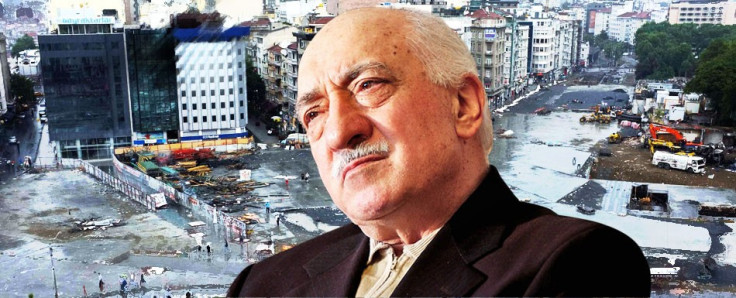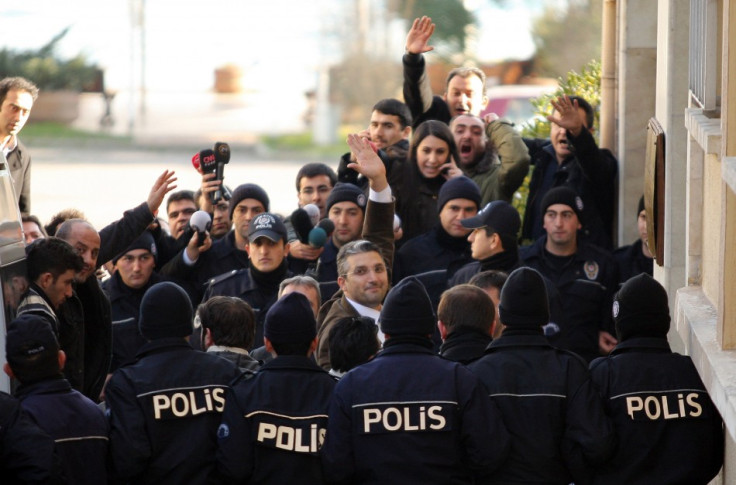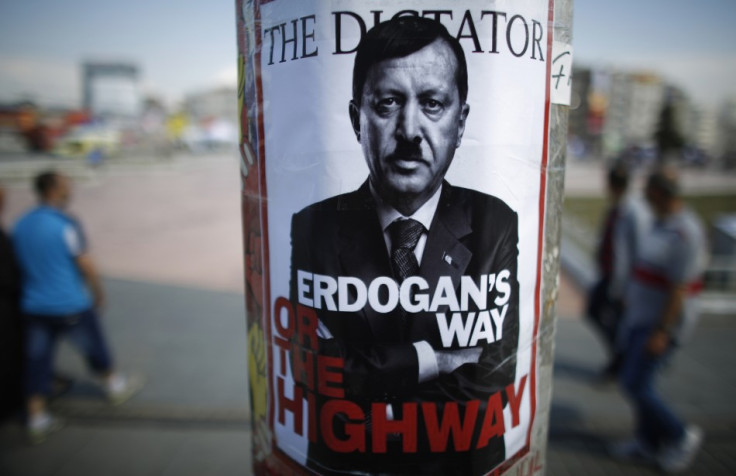Who is Fethullah Gulen, Turkey's Powerful Cleric in Self-Exile?
Liberal Turkish imam is critical of Erdogan's government. But does he have a hidden agenda?

After a week of anti-government protests swept Turkey's biggest cities, the country's most powerful Muslim cleric, who is in self-imposed exile in Pennsylvania, has finally spoken out.
Fethullah Gulen, a charismatic imam who proposes a moderate interpretation of Islam, has criticised Prime Minister Recep Tayyip Erdogan over the way he has handled the protests.
"If you claim that protesters are not seeking their rights, then you would ignore the innocent demands of some," he said in reference to Erdogan labelling demonstrators as "looters" or "small fringe groups".
"We need to act smart and see the smallest problems as very big and we need to handle them in a smart way. If innocent people are killed, if some are choked with gas bombs and if some are blind enough not to see, the fire could rage," he continued.
"Underestimating negative developments reveal a problem in judgment, mind and logic."
A tense relationship
His words reveal a rift between his Gulen movement and the populist, increasingly authoritarian prime minister.
When the moderate Islamist AKP took power in 2002, the Gulen movement provided indispensable support for Erdogan with its extensive influence in the media, police and judicial system.
Self-exiled since 1999 - when he flew to the United States officially for "medical controls" but was actually fleeing charges of plotting to overthrow the government in Turkey - Gülen, 70, has built an impressive network of more than 1,000 schools in 140 countries, from South Africa to the United States.
But it is in Turkey that the movement has the strongest support and affiliations, including in the country's largest daily newspaper, Zaman, and its English equivalent, Today's Zaman.
Both Gulenists and Erdogan's Justice and Development (AK) party were long persecuted by the secularist generals. After AKP swept to a second term in 2007, pro-Gulen prosecutors cracked down on generals through the "Ergenekon trial" of hundreds of alleged coup plotters.
Gulenists seized the opportunity to take revenge on former rivals, including the military.
"Hardcore activists within the Gulen movement are driving the arrests," Gareth Jenkins, an expert on Turkey at the Central Asia-Caucasus Institute, affiliated with John Hopkins University, told the New York Times. "It is revenge for the 1990s, when the military oppressed Muslim conservatives."
However, the relationship between Erdogan and Gulen has become tense after the often indiscriminate wave of detentions tainted the image of the movement. "They shared power with AK but they kept wanting more," said an observer.
Infiltrating Turkish police?

World-renowned journalists such as Ahmet Sik and Nedim Sener were searched and arrested in 2011 for links with the Ergenekon plot. But press freedom organisations claimed the two reporters were put in jail for their work rather than alleged affiliation with a "deep state", ultra-nationalist gang.
Arguably, Sik's wrongdoing was to write a book, "The Imam's army", which includes many evidences of Gulen interfering with the police and the judiciary, working behind the scenes to gain political power in Turkey. According to the journalist, the police "has almost become the armed unit" of Fethullah Gulen, with people affiliated to the movement promoted early to senior roles and allegations of Gulenists applicants for police roles who were provided answers in advance before entrance exams. Some rough statistics claimed that 95% of the police personnel department belonged to Gulen movement.
However, sympathisers to the movement reject the notion of "infiltration" and claim that the elusive, informal network of followers is just a civic movement aimed at creating a "golden generation "of humanism, science and islam.
"You can't talk of Gülenists infiltrating into the police, because Gülen people are the Turkish people," Mucahit Bilici, Assistant professor of sociology at John Jay College, City University of New York, says. "There could be individual members sympathising for them, not a secret organisation plotting to overthrow the [Turkish] government."
Sik was released in March 2012. He remains under indictment for another case. According to the Committee to Protect Journalists, Turkey has now surpassed China for the number of incarcerated journalists
Wikileaks

A 2009 cable by the United States ambassador to Turkey at the time, James F. Jeffrey, published by WikiLeaks, stated that Gulen followers reportedly dominate the Turkish police, where they serve as "the vanguard for the Ergenekon investigation".
It said that Gulenists "have as their ultimate goal the undermining of all institutions which disapprove of Turkey becoming more visibly Islamist".
The cable revealed it was impossible to corroborate an assertion that the Turkish national police (TNP) is controlled by Gulenists. An extract from the leaked cable says it "is impossible to confirm but we have found no one who disputes it, and we have heard accounts that TNP applicants described as Gülenists are provided answers in advance to the TNP entrance exam.
According to Yusuf Kanli, columnist for Hürriyet News Daily, Gülenists influence in the police is hard to prove, and whoever crosses the line is subjected to intimidation and even arrest.
"I can't speak on this issue, Ahmet Şik is in prison now [2011] for having stated the influence of Gülenists into the police" Kanli said in 2011. "Nobody can prove it because they don't have membership, they are a religious society, not an association."
In the cables, it is stated that Gülen's application for a green card in the US was initially rejected. The cleric was classified as an "alien of extraordinary ability", and only after a while was his request accepted.
Undoubtedly, US authorities revised their opinions about him.
What made them change their minds? Allegations that the US was behind the Gülen movement are firmly discarded in another cable. A standard press guidance stated that "the US is not 'sheltering' Mr Gülen" and "his presence in the US should not be viewed as a reflection of US policy towards Turkey".
Link to Cyber-Attack on US citizen
Earlier this week, a US woman anonymously told Wired she was targeted in a cyber-attack because of her outspoken criticism of the Gulen movement.
The woman, who doesn't want to be identified over fears of retaliation said she received a highly-tailored spear-phishing email purporting to be from a Harvard professor who had previously written about the Gülen movement.
The email contained a link to a website in Turkey which hosted malicious software which would be downloaded to your PC if you simply clicked on the link. The woman sensed a problem with the email and on closer inspection of the email address saw it was sent from an @hawhard.edu address rather than the expected @harvard.edu.
While there is no concrete evidence about who was behind the attack, there is significant circumstantial evidence about the identity of the cyber attacker. Mark Spencer from Arsenal Consulting said: "We have an email, a purported sender, and a target all critical of the Gülen movement. We have professional malware launched from a server in Turkey. You can take it from there."
© Copyright IBTimes 2025. All rights reserved.






















